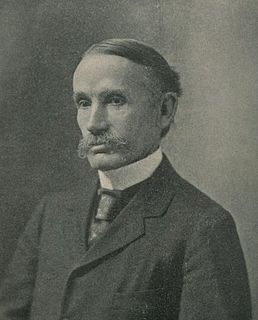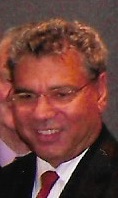A Quote by Mark Twain
I am trying to get the hang of this new fangled writing machine, but I am not making a shining success of it. However, this is the first attempt I have ever made & yet I perceive I shall soon & easily acquire a fine facility in its use. ... The machine has several virtues. I believe it will print faster than I can write. One may lean back in his chair & work it. It piles an awful stack of words on one page. It don't muss things or scatter ink blots around. Of course it saves paper.
Quote Topics
Acquire
Am
Around
Attempt
Awful
Back
Believe
Chair
Course
Easily
Ever
Facility
Faster
Fine
First
Get
Hang
His
However
I Believe
Ink
Lean
Machine
Made
Making
May
New
Page
Paper
Perceive
Piles
Print
Saves
Scatter
Several
Shall
Shining
Soon
Stack
Success
Than
Things
Trying
Use
Virtues
Will
Words
Work
Write
Writing
Related Quotes
Our old - fashioned system is better than any new - fangled voting machine. Not only is it guaranteed to work, but there is something I find appealing in putting a mark on a piece of paper for the candidate of your choice, as opposed to pulling a lever as if you were gambling on a slot machine in Las Vegas.
The writer learns to write, in the last resort, only by writing. He must get words onto paper even if he is dissatisfied with them. A young writer must cross many psychological barriers to acquire confidence in his capacity to produce good work-especially his first full-length book-and he cannot do this by staring at a piece of blank paper, searching for the perfect sentence.
For many years I wanted to be a rock star but of course that didn't work out. I did however write on napkins and pieces of paper sentences and occurrences. I decided maybe I should write a book because I had been writing so much. I'm actually writing a book based on The Room that will hopefully be published soon.
I told [Kruesi] I was going to record talking, and then have the machine talk back. He thought it absurd. However, it was finished, the foil was put on; I then shouted "Mary had a little lamb," etc. I adjusted the reproducer, and the machine reproduced it perfectly. On first words spoken on a phonograph.
I learned the importance of a man's chair early in life. I learned that he may love several wives, embrace several cars, be true to more than one political philosophy, and be equally committed to several careers, but he will have only one comfortable chair in his life. I learned it will be an ugly chair. It will match nothing in the entire house. It will never wear out.
I remember on page one of The New York Times the article about Fred Leuchter. The heading was "Can Capital Punishment Be Humane" and it was the story about an electric chair repairman and execution machine designer. And then buried in the back of the paper was the fact that Fred Leuchter had also been involved in holocaust denial.
I always thought that digital first was a simplistic notion, and I am not even sure quite what it means. It should be stories first. Let's take the Paris story: the New York Times covered it all day, we held nothing back. Everything we learned, we published online. Then, when you approach your print deadline, you have to do two things. You have to polish those stories that are online because print is less forgiving of mistakes. Secondly, in an ideal world, you pick one thing that will feel fresh and compelling to people in the morning when they pick up the print paper.





































